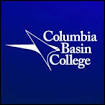What do they do?
Collect and test samples to monitor results of nuclear experiments and contamination of humans, facilities, and environment.
Also known as:
Health Physics Technician (HP Tech), Nuclear Chemistry Technician, Radiation Control Technician (Radcon Technician), Radiation Protection Specialist (RP Specialist), Radiation Protection Technician (RPT), Radiation Technician, Radiochemical Technician
-
-4.2%
Change
Ranks #22 in job growth rate20Job Openings
Ranks #14 in net job growth
Looking for colleges that offer a specific major? Use the College Match Tool to find your best-matched schools and discover your estimated Net Price!
- Bachelor's degree (34%)
- Some college, no degree (21%)
- High school diploma equivalent (19%)
- Associate's degree (13%)
- Master's degree (9%)
- Doctorate or Professional Degree (2%)
- Less than high school diploma (2%)
People in this career often have these skills:
- Active Listening - Giving full attention to what other people are saying, taking time to understand the points being made, asking questions as appropriate, and not interrupting at inappropriate times.
- Critical Thinking - Using logic and reasoning to identify the strengths and weaknesses of alternative solutions, conclusions, or approaches to problems.
- Monitoring - Monitoring/Assessing performance of yourself, other individuals, or organizations to make improvements or take corrective action.
- Reading Comprehension - Understanding written sentences and paragraphs in work-related documents.
- Operations Monitoring - Watching gauges, dials, or other indicators to make sure a machine is working properly.
- Speaking - Talking to others to convey information effectively.
- Judgment and Decision Making - Considering the relative costs and benefits of potential actions to choose the most appropriate one.
People in this career often have talent in:
- Problem Sensitivity - The ability to tell when something is wrong or is likely to go wrong. It does not involve solving the problem, only recognizing that there is a problem.
- Oral Comprehension - The ability to listen to and understand information and ideas presented through spoken words and sentences.
- Oral Expression - The ability to communicate information and ideas in speaking so others will understand.
- Deductive Reasoning - The ability to apply general rules to specific problems to produce answers that make sense.
- Inductive Reasoning - The ability to combine pieces of information to form general rules or conclusions (includes finding a relationship among seemingly unrelated events).
- Written Comprehension - The ability to read and understand information and ideas presented in writing.
- Near Vision - The ability to see details at close range (within a few feet of the observer).
- Written Expression - The ability to communicate information and ideas in writing so others will understand.
- Information Ordering - The ability to arrange things or actions in a certain order or pattern according to a specific rule or set of rules (e.g., patterns of numbers, letters, words, pictures, mathematical operations).
- Selective Attention - The ability to concentrate on a task over a period of time without being distracted.
- Perceptual Speed - The ability to quickly and accurately compare similarities and differences among sets of letters, numbers, objects, pictures, or patterns. The things to be compared may be presented at the same time or one after the other. This ability also includes comparing a presented object with a remembered object.
- Category Flexibility - The ability to generate or use different sets of rules for combining or grouping things in different ways.
- Speech Clarity - The ability to speak clearly so others can understand you.
- Flexibility of Closure - The ability to identify or detect a known pattern (a figure, object, word, or sound) that is hidden in other distracting material.
People in this career often do these activities:
- Communicate safety or hazard information to others.
- Measure radiation levels.
- Train personnel in technical or scientific procedures.
- Collect environmental data or samples.
- Analyze environmental data.
- Record research or operational data.
- Advise others on management of emergencies or hazardous situations or materials.
- Set up laboratory or field equipment.
- Calibrate scientific or technical equipment.
- Maintain laboratory or technical equipment.
- Prepare operational reports.
- Clean objects.
- Prepare biological samples for testing or analysis.
- Collaborate on research activities with scientists or technical specialists.
This page includes data from:

 Occupation statistics: USDOL U.S. Bureau of Labor Statistics Occupational Employment Statistics
Occupation statistics: USDOL U.S. Bureau of Labor Statistics Occupational Employment Statistics







